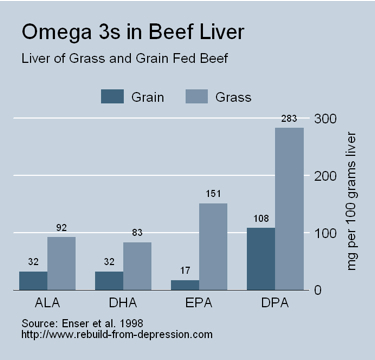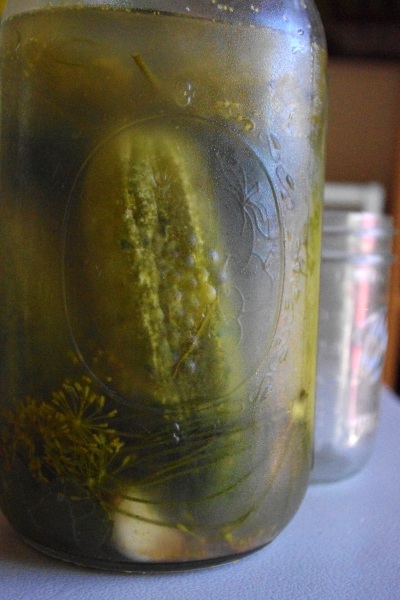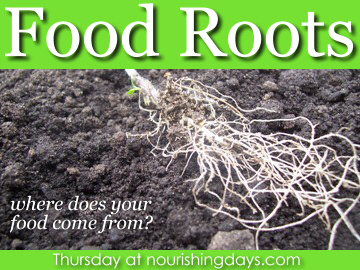Foods for Depression

Today I bring you a guest article from author Amanda Rose of the foods for depression site. You can also find out what the #1 depression-fighting food is and you’ll know why I really respect her work.
Another nail in the fast food coffin comes this week as Spanish researchers associate consumption of trans-fatty acids and depression. You are more likely to be depressed if you rely on a regular staple of packaged baked goods and snacks or items such as fast food French fries. When you look at a vending machine with a little packaged cake inside, that is what we are talking about here. Take-home lesson: Step away from that vending machine.
The most infamous trans fat comes in the form of vegetable shortening, a partially hydrogenated trans fatty acid that is cheap substitute for butter and lard in baking and coconut oil or palm oil in frying. If trans-fat is a cheap substitute for traditional forms of fat, it does beg the question: What fats should we eat to avoid depression? The Spanish study does not leave readers with a lot of wisdom on this key question, but we can look to other studies and to the history of the human diet for advice.
Omega 3 In Fish For Depression
The traditional human diet has been high in the Omega 3 fatty acid found in fish and seafood. In fact, Weston Price’s book details how traditional peoples traveled great distances to get mollusks like crab and clam, rich in Omega 3 fats and abundant in minerals. These foods have a spectrum of nutrients that can help fill your nutritional needs whether you are a toddler, teenager, pregnant mother, or aging grandmother.
If your diet is high in vegetable oils, you actually need even more Omega 3s. Your best bet is to cut out sources of corn and other vegetable oils such as store-bought crackers and chips. You have surely already cut out trans fats as well but you should also know that your metabolism of trans fats interferes with your Omega 3 metabolism. If you eat a basket of “fish and chips,” you need a whole lot of fish to make up for those chips. Ideally, the fish will be “wild” – wild salmon for instance.
Wild fish and seafood are higher in Omega 3s than their farmed counterparts and they are generally lower in the toxins that now proliferate our waters. If you already struggle from depression, you may need even more Omega 3 for depression than that crab or salmon fillet can provide. In depression clinical trials, researchers have found high doses of Omega 3 fatty acids effective in lowering depression. Read more from me about omega 3 and depression if you are currently struggling with depression.
Omega 9 In Olive Oil For Depression?
Olive oil may help fight depression. This is a new area of research but there is a lot of evidence that olive oil is good for us. It is associated with heart health, longevity, and reduced instances of degenerative diseases. It may protect against depression as well. One of my favorite meals combines Omega 9 and Omega 6 in the form of a healthy salad, with an olive oil-centered dressing, my favorite seasonal lettuce, and topped with salmon or crab. In fact, you can make a dressing simply by combining olive oil with a bit of balsamic vinegar and chopped garlic.
Pastured Meat For Depression?
 Wild game and pastured meats may help your struggle as well. In my book Rebuild from Depression: A Nutrient Guide I provide a list of “depression buster foods” – foods high in nutrients associated with depression. Wild fish and wild game top the list because of the fatty acid profiles and the density of vitamins and minerals. (Read more here about foods for depression).
Wild game and pastured meats may help your struggle as well. In my book Rebuild from Depression: A Nutrient Guide I provide a list of “depression buster foods” – foods high in nutrients associated with depression. Wild fish and wild game top the list because of the fatty acid profiles and the density of vitamins and minerals. (Read more here about foods for depression).
Beef liver is actually a great example. All animal liver is loaded with B vitamins and minerals; it is also very high in fat. Note in the graph that the fat is more likely to be of the Omega 3 variety if the animal has been on a diet of grass. I rely on liver when I am under great stress because it helps keep my body replenished of an array of nutrients. You can find it at any health food store.
Foods For Depression
Food does affect your mood. Your brain needs the right mix of fats, vitamins, and minerals to be healthy. Some foods wreak havoc on that delicate balance – fast foods are a prime example. Other foods will help you fight depression, including fish and seafood abundant in Omega 3 and wild game with a healthy array of vitamins, minerals, and fats. Incorporate these foods into your own diet and the diet of your family. You may be surprised to find a family a little less grumpy and on-the-edge. Over time, you may even protect your aging brain from decline if you nourish it well.
You can learn more from Amanda’s excellent book, Rebuild From Depression: A Nutrient Guide.



This could be one of the explanations as to why so many are depressed and are on medication. Second to pain meds, I would say antidepressants were counted out by me more than I would like to admit. Something is wrong. If this is a stepping stone to a solution, I say get rid of all trans fats. (Maybe I wouldn’t have to count so many statins then!)
i understand the omega three connection but meat? really? that seems so counter to to all the “food experts” say!
pammypam – Yeah, I am not sure how “expert” the food experts truly are. If you look into traditional cultures you will see that they went way out of their way to obtain some form of animal products. They didn’t have health experts, but they knew that those foods made them thrive. I think the liver point is especially a good one, since most westerners never eat offal. In any more agrarian society every. single. part. of the animal was eaten for many reasons, one of them being that it produced good health.
Thanks for the info. My husband has dysthemia (longterm depression), we have been working since November on switching him from medications to a nutrition-based approach. I’m always in search of new info to shape our diet to help him.
I tried to reply to WashingtonPharmGirl’s comment (nice name by the way-I’m from WA as well) but got an error message when I clicked the reply button. Anyway, I wanted to say to her specifically and actually to everyone: yes, this diet would help a lot of people who are depressed and currently taking meds. I personally think it’s a shame and a crime that doctors rarely, if ever, mention diet and exercise in their treatment protocol. For mild and situational depressions, the diet and exercise approach alone is probably sufficient in most cases. HOWEVER, please don’t assume that because someone is taking psychotropic medication, it means that they aren’t taking care of themselves. I will share a little bit of my story. I have been severely depressed since I was about 15 years old (I’m 23 now.) I suffered for years because I didn’t want to take “brain damaging” drugs. Sometime in high school I started eating an excellent, clean diet, exercised regularly and was even able to lose a lot of weight. Yet I still suffered from depression and anxiety which were debilitating. I could go on and on, but basically, I need medicine. Without my medicine, even with this way of eating and daily cardio exercise, I’m in bed crying every single day. There is no way I would finish college, hold a job, or have a family, all of which I’m determined to be able to do. The medicine is not a quick fix or a cure-all, but it takes the edge off so that I’m able to live a reasonably normal life. I just wanted to tell everyone that if someone you know is depressed, please don’t discourage them from necessarily taking medicine. It could save their life. Do emphasize the benefit-the necessity-of eating a clean diet as described in this post. Encourage them to read a lot of balanced information from a variety of sources, both conventional medicine and alternative/lifestyle-based. I would hate to think that my friends and family or even a pharmacy worker where I fill my prescription think that I’m taking the easy way out. Believe me, we’re not. We either have a mild case and lack the information to treat it without drugs, or it’s more severe and we are taking care of ourselves as best we can. Thanks for reading. 🙂 And I apologize if I sound preachy, NO condemnation intended…this is just a subject that’s near and dear to my heart.
@Gabriella,
Nicely put. I too suffer from depression as do many people I know, some can not live without the medication, and some can. I agree with everything you said. Thanks for sharing your story.
Gabriella you have pointed out a very important point. I’m so sorry for your depression and it seems that you are a very bright and informed young woman. My youngest is the same age, and I don’t think she could write something as profound as you. While I have met many people personally who don’t see the food/mood connection and actually don’t care or don’t want to face that reality, you have reminded us that not all are like that and to be careful in how we judge and think of others. I try to share any of my knowledge, but I can tell when it’s not wanted and stop myself, ha, can be hard. I enjoy all the posts and replies and look forward to them.
Oh, one more thing, you aren’t sounding preachy, at least to me.
Hi everyone. Thank you for reading my article.
@Gabriella: I am sorry to hear about your struggles with depression. I am not actually so much anti-medication as I am pro-nutrition. Meds do help some people climb out of the pit and, when they are out, there is a lot they can do to take care of themselves. A good diet is an important place to start.
It’s also interesting that researchers are finding that certain nutrients like mega 3 and folate actually help pharmaceuticals work better and so I hope that more people won’t see it as an “either/or” approach. Even if they are taking meds, they should look at their complete lifestyle.
@PammyPam: Meats (especially seafood) are the best sources of the long chain Omega 3s that are important for brain health. Some plant foods like flax have Omega 3s but your body has to convert them to the longer chain form and not everybody does so efficiently or effectively. Meat is also a rich source of iron and zinc, both of which can aggravate your depression if you are deficient. You can get iron and zinc from plant-based foods but you have to work a lot more at it (something that depressed people may have a hard time doing).
Amanda
This is such an important topic right now. I agree some people need medication. It helps them to be able to care enough to make changes. Without the food and exercise component, the drugs can only be so effective. Our family has several people who are using anti-depressants/anxiety medication. The ones who take care of their food and exercise are much more grounded and better able to cope with stress and daily life. Thank you for bringing more awareness to this subject. I look forward to checking out the book “Rebuild From Depression: A Nutrient Guide”.
Marie,
I don’t know what part of the country you live in but, I was diagnosed with dysthymia initially. Later, by my own tracking it became obvious that it was seasonal. I primarily had the most trouble in winter. It is in fact, Seasonal Affective Disorder. Anyone living laterally, north of where Indianapolis is can be affected by it. I was on meds for about 5 years, the last 3 being winters only. Early Sept through mid April. I have not taken them for about 12 years. The two things that have had the most impact have been the use of a light box for photo therapy and no carbonated beverages. I also lost 20 pounds after terminating the meds, they made me crave sugar and gain weight. You might give some thought to this as well. Best to you.
Many of my patients check off “depression” as a health condition they currently experience. There is obviously a strong connection between their dis-ease, their lifestyle and diet, and their sense of falling short of being their higher selves in life. A nutrient-rich diet is fuel for the body and mind. Acupuncture and Chinese herbal formulas are powerful medicine for depression only in light of the patients performing their half of the Practitioner-Patient partnership: eating anti-depression foods, exercising (esp. outdoors in sunlight), surrrounding themselves with positive people, being involved with their communities/society and/or spiritual center, and so forth. I would love to treat dysthemia. Thank you for the article and comments posted. I so enjoy learning.